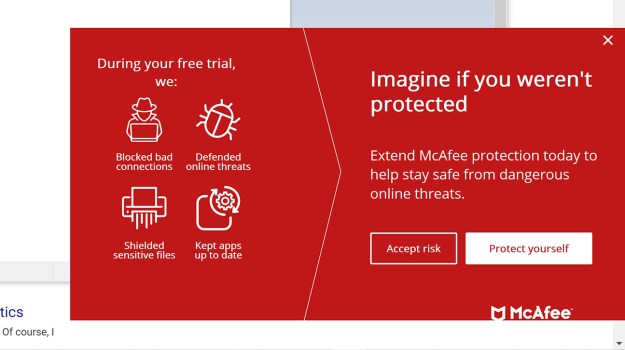
I wish my headline said, “Here’s how to end the uncivil war, Mr. President.” But I can’t say that, because I don’t know how to undo the damage.
But finally, after more than four years of bewilderment, I finally feel like I have a grip on what has caused the problem, and I’m not letting go. If I keep saying “Here it is!” enough, maybe someone else will see what to do about it, even if I don’t.
I’ve written about this in two posts now, here and here. In the second one, I mentioned having watched part of the documentary “The Social Dilemma,” and indicated I might say more about it when I’d seen it all. I finished watching it about a week ago, and yes, it certainly reinforced the epiphany I’ve been writing about. But I got distracted doing other things, and didn’t get to it.
Today (yesterday now, since I didn’t finish the post until Saturday), I’m reminded of the urgency by a several things I’ve read — items that point to the continued rapid descent of most of the country’s Republicans into madness. There’s the case of that deranged woman from Georgia, and the House GOP’s deep reluctance to deal with her. (The Republican leader is too busy running down to Florida to beg forgiveness of his master.) There are stories about polls, showing how most of that party’s adherents are still shockingly lost in their delusions. There was a Frank Bruni piece about how Marco Rubio — and anyone else with designs on the GOP nomination in 2024 — has utterly degraded himself in the pursuit of the support of his party’s conspiracy wing. And more.
How did close to half the country lose its grip on reality? Well, that’s what I’ve been talking about in those previous posts, and return to today.
There’s a great moment near the start of “The Social Dilemma” when several tech industry veterans who are deeply concerned about what’s going on are asked to answer the question, “What’s the problem?”… and each of these otherwise articulate people stops, and stares vacantly, and for a long moment, fails to come up with an answer.
It made me feel better, because these were expert people who were here to talk about it, and had trouble explaining what the problem was.
As I said in my first post on this subject, I’ve been familiar with the problems for years, and felt stupid speaking of an “epiphany” when the basic facts were so obvious:
I’ve commented on this before. Everyone has. And I was conscious of the cause of the problem. But recently, I came to realize it, to understand it, to grok it, more fully. And it was as though I hadn’t thought about these things before.
It happened first when I listened to a podcast series from several months ago, called “Rabbit Hole.” If you haven’t listened to it, I wish you would…
That podcast helped the points sink in, to where it suddenly hit me that this was the explanation of Trumpism, specifically the explanation of how such a large portion of the country — close to half — had completely lost connection with reality, becoming immune to evidence to an extent far beyond old cliches about “confirmation bias” and such.
It was happening because they inhabited separate realities, which seemed as real to them as any other. And they were prepared to go to pretty much any lengths to defend their delusions, as we saw demonstrated so dramatically on Jan. 6, and in the willingness of so many to ignore the implications of those events. (By the way, these processes don’t just distort the perceptions of Trump supporters. It’s just that with Trump, you had a figure emerge who reinforced the tendencies of Qanon believers, white supremacists, and other whackos by repeatedly telling them it was all true, and that it was not only OK, but virtuous to embraces such insanity. This unprecedented situation caused that particular, easily deluded, segment of the population to go completely off the rails.)
Those experts momentarily lost the ability to address the Problem because it has so many aspects, all interacting with each other. But to simplify, these two factors are generally at the core:
- First, the fact that so many people now get all of their information that explains politics and the world to them from, shall we say, “nontraditional sources.” At the same time, part of what those sources have brainwashed them to believe is that the “traditional sources” — ones that operate according to procedures and ethics that require that facts actually check out before being reported — are “fake news,” and not to be trusted. Yes, this is very obvious, and doesn’t really explain things until you get to the second point…
- The way the Web works when it is successful. Success depends on keeping your attention, so that attention can be sold to advertisers. Which is the way newspapers, television, radio and other media monetized themselves — except that the Web is astonishingly better at it. And there’s one aspect of the algorithms that make them succeed more than anything: The simple matter of showing you what you like (or tell you what you want to hear), and then showing you more of it, to the point that you never get to anything else.
Ultimately, you end up living in a completely different reality from others whose predilections, in concert with the algorithms, have herded them into their own, distinct — and often diametrically opposed — universes. (Again, this works on MSNBC watchers as well as on the Fox people. But Rachel Maddow isn’t working in tandem with a POTUS who does not give a damn what the truth is. So things don’t get nearly as crazy. But it does mean that as Trump’s base gets crazier, people on the left move farther and farther away from them, and the Trump base sees that disdain, and gets crazier.)
Eventually, the deliberative processes that are essential to our system of representative democracy break down. Representatives who know their constituencies have no points of agreement on facts with people who live in other constituencies cast aside evidence and make themselves immune to persuasion, lest they lose their seats. Debate in legislative bodies is pointless, because it’s not about trying to achieve productive synthesis with the views of members on the other side of the aisle; it’s simply about proving one’s purity in adhering to the “reality” in which most of one’s constituents live.
Back to the movie…
“The Social Dilemma” has a lot of flaws, the most obvious of them being dramatization. When it sticks to tech gurus talking about the problem, it’s great. When it uses actors to act out the problems, it gets kind of cheesy. Perhaps that keeps more people watching (hey, just like YouTube!) but it almost made me turn it off a number of times.
The dramatizations try to capitalize on parents’ concerns about their children’s Web addiction — a very serious problem that all parents should worry about, but not the reason I’m watching. There’s this fictional family of actors, and you watch one teenaged boy who starts out fairly rational gradually get seduced into extreme views, to the exclusion of everything else in his life.
Perhaps the cheesiest thing — but I understand that someone thought this would help us understand better the way the algorithms work — are these fantasy sequences in which you see the algorithms personified. This one actor appears as three different parts of the online code, and his three “characters” have conversations with each other about how they are manipulating the teenager, as they gradually assemble a more and more complete model of the kid as he spends more time online. These scenes are exceedingly creepy — and meant to be — and I finally figured out one reason why. The actor personifying the algorithm is the one who played “Pete” on “Mad Men.” Creepy is what this guy does. (You kind of wonder what happened to him along the way to give him a face like that.)
But eventually the film confronts the issues that interest me, the ones I’ve written about in those preceding posts. This initially happens when, out of the blue, the person being interviewed is Guillaume Chaslot (pictured above), the Frenchman who helped develop YouTube’s “recommendation” software — before he realized with horror what it was doing.
I recognized him when he used the phrase “rabbit hole” — because his was one of the more important voices heard in the podcast series of that name. In the podcast, it was described how two developments on YouTube led to the creation of conditions that lead people to become committed conspiracy adherents — first, the moment when YouTube started allowing long videos, entire talk shows and such, to be posted. Then, the development of the current “recommendation” system, which essentially says, “You liked that? You’ll love this,” which so easily pulls people deeper into the hole as they watch one whack job’s video, then another more extreme one, then one more extreme than that, and on and on…
Mind you, the experts — the elements of the film I prefer — all insist that there are no bad guys (although the environment thus created is a welcome mat to bad guys, such as Vladimir Putin, to step in and use it). The aims of the people making these separate realities possible are fairly innocuous. As one of the main talking heads explains, as we’re watching the creepy Petes manipulate the kid:
At a lot of these technology companies, there’s three main goals.
There’s the engagement goal: to drive up your usage, to keep you scrolling.
There’s the growth goal: to keep you coming back and inviting as many friends and getting them to invite more friends.
And then there’s the advertising goal: to make sure that, as all that’s happening, we’re making as much money as possible from advertising….
Hey, there’s nothing wrong with that, I can tell you as an old newspaperman (at least, that’s what the people on the business side kept telling me — and of course I noticed that when they stopped making money, everything that was important to me disappeared. Which was bad…). But when Web-based businesses do the same thing, we start seeing processes that humanity has never seen before, and which evolution has not equipped us to handle.
Anyway, I urge you to watch this film as well. Because I think it’s important in the extreme for all of us to understand how people come to accept the most unlikely-seeming propositions, and cling to them with religious fervor — fiercely resisting any attempt to argue them back to reason.
Because it’s tearing us apart.
There are plenty of other ways in which these problems — or at least bits and pieces of them — are being examined. I was listening to a podcast yesterday in which a New York Times reporter who watched Qanon chats happening during the Inauguration on Jan. 20, with the true believers assuring each other that at any second, Trump would declare martial law and stop the “steal.” Did they wake up when it didn’t happen? Some did. Others told themselves they had simply misinterpreted Q’s prophesies. It’s an interesting examination of effects, if not causes.
Or the piece I read in the NYT this morning headlined “The Coup We Are Not Talking About.” The writer approaches the same problems from a different direction, that of the development of “surveillance capitalism.” I think it’s the wrong direction, but perhaps it’s because some of the connections he makes are unconvincing. But maybe he made a better case in his book on the same subject. Anyway, he touches on the problems I’m on about, although in the service of his thesis:
The third stage, which we are living through now, introduces epistemic chaos caused by the profit-driven algorithmic amplification, dissemination and microtargeting of corrupt information, much of it produced by coordinated schemes of disinformation. Its effects are felt in the real world, where they splinter shared reality, poison social discourse, paralyze democratic politics and sometimes instigate violence and death.
Yeah, he uses the word “epistemic” a lot. And in other ways, he fails to express himself with simple clarity. Kind of made me more sympathetic to the cheesy dramatizations of “The Social Dilemma.” At least they were trying to reach people outside of academia.
But hey, if it leads you to understand it better, try that approach. Because we all need to come to understand it.
And do something about it. Again, I don’t know what to do, what with the toothpaste being fully out of the tube and everyone slathering themselves with it (kind of overdid that metaphor, didn’t I?). But I figure we need a diagnosis before someone comes up with the cure.
By the way, to head off certain obvious objections… before someone cries, “you’re acting like things were fine before this,” allow me to point out the obvious fact that I am not. As I have documented over and over in recent decades, things have been getting nasty in our politics for some time. There have been a number of milestones of our division into tribes that despise each other, and won’t listen to each other, thereby making the function of a deliberative form of government increasingly impossible. You could point to the emergence of negative campaigning in 1982 (which helped to produce the likes of Lee Atwater and his acolyte Karl Rove), or the moment in late 1992 when I first saw a new “Don’t Blame Me; I Voted Republican” sticker on a car before Bill Clinton was even inaugurated. Or Democratic lunacy over Clinton’s impeachment, leading them to defend the indefensible — or, two years later, their claims (very civil, nonviolent and short-lived claims, as opposed to what we’ve seen in recent days) in 2000 that the election was “stolen.” Or for that matter, BDS. Or the rise of the Tea Party or the Freedom Caucus, and the maniacal determination to stop anything Barack Obama tried to do — or, failing that, to undo it. (Remember the bizarre spectacle of all those utterly vain votes to “repeal Obamacare?”)
All before Trump. But not all before this phenomenon that I’m talking about, which certainly played a role in the things we saw in the earlier part of this past decade. In any case, this new problem, or set of problems, landed in a nasty partisan environment, and then exponentially accelerated the sickness, with a twist.
I could say a lot more, but at well over 2,000 words, I’d better stop….

Creepy Pete in triplicate, manipulating the kid.
































